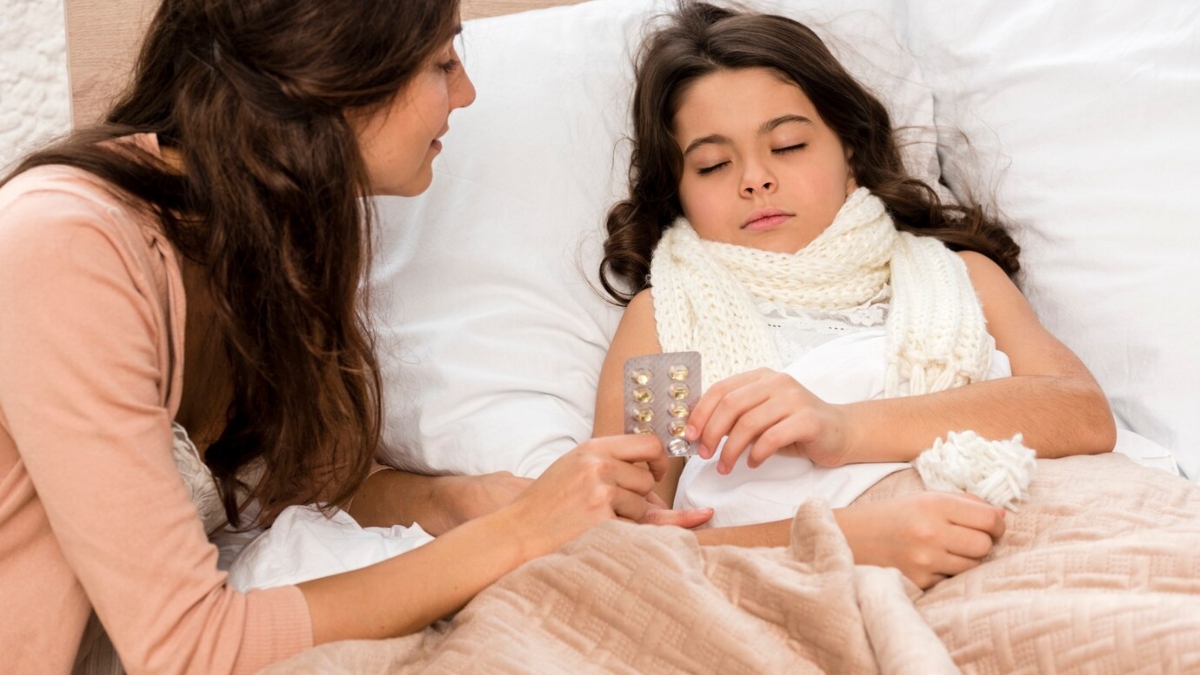Community-acquired pneumonia (CAP) refers to lung infections contracted from community settings (house, school, family gatherings, etc.) outside of hospital or healthcare settings. It occurs when bacteria, viruses, or fungi infect the air sacs in the lungs.
Dr Farhan Shaikh, Consultant Paediatric Intensivist, Rainbow Children’s Hospital, Banjara Hills, Hyderabad, has explained to us that common viruses that cause CAP in children are Adenovirus, respiratory syncytial virus (RSV), and influenza. While bacterial infections, particularly by Streptococcus pneumoniae and Haemophilus influenza, are also common culprits
Symptoms: Parents should be familiar with typical pneumonia symptoms in children, including fever, cough (often with mucus or phlegm), rapid or difficult breathing, chest pain, fatigue, and sometimes vomiting or diarrhoea. Infants may also show subtle signs like poor feeding, irritability, or lethargy.
Diagnosis: If a child is suspected of having CAP, a doctor will evaluate their symptoms, conduct a physical examination, and order additional tests such as a chest X-ray, blood tests, or a nasopharyngeal swab to identify the specific cause.
Treatment: Treatment for CAP will depend on various factors, including the child's age, severity of symptoms, and the identified cause. Antibiotics may be prescribed for bacterial pneumonia, while viral pneumonia typically relies on supportive care such as rest, hydration, fever management, and possibly antiviral medications. In a small percentage of cases, pneumonia can be overwhelming for the child, leading to breathing difficulty and respiratory distress, needing oxygen to maintain normal oxygen saturations in blood. In such situations, the child may require hospitalisation. In some cases, if the oxygen saturation is falling despite adequate delivery of oxygen by simple oxygen delivery devices like Oxygen masks, then the child will need to be admitted to more specialised care units called paediatric intensive care units, where they need more close monitoring and high-end care which may involve mechanical ventilation or even extracorporeal membrane oxygenation (ECMO) in rare instances.
Prevention: To help prevent CAP in children, parents should ensure their child receives routine vaccinations according to India's recommended immunisation schedule. Vaccines against diseases like pneumococcus and influenza are essential in preventing pneumonia.
Hygiene practices: Parents should educate their children about proper hand hygiene, including regular handwashing with soap and water or using alcohol-based hand sanitisers. Avoiding close contact with sick individuals and practising respiratory hygiene, such as covering the mouth and nose while coughing or sneezing, can help reduce the spread of respiratory infections.
Healthy lifestyle: Encouraging a healthy lifestyle, including a balanced diet, regular exercise, and adequate sleep, can contribute to maintaining a robust immune system, potentially reducing the risk and severity of CAP.
Seeking medical attention: Parents must seek prompt medical attention if they suspect their child has pneumonia. Early diagnosis and treatment are essential in managing the condition effectively and preventing complications.

